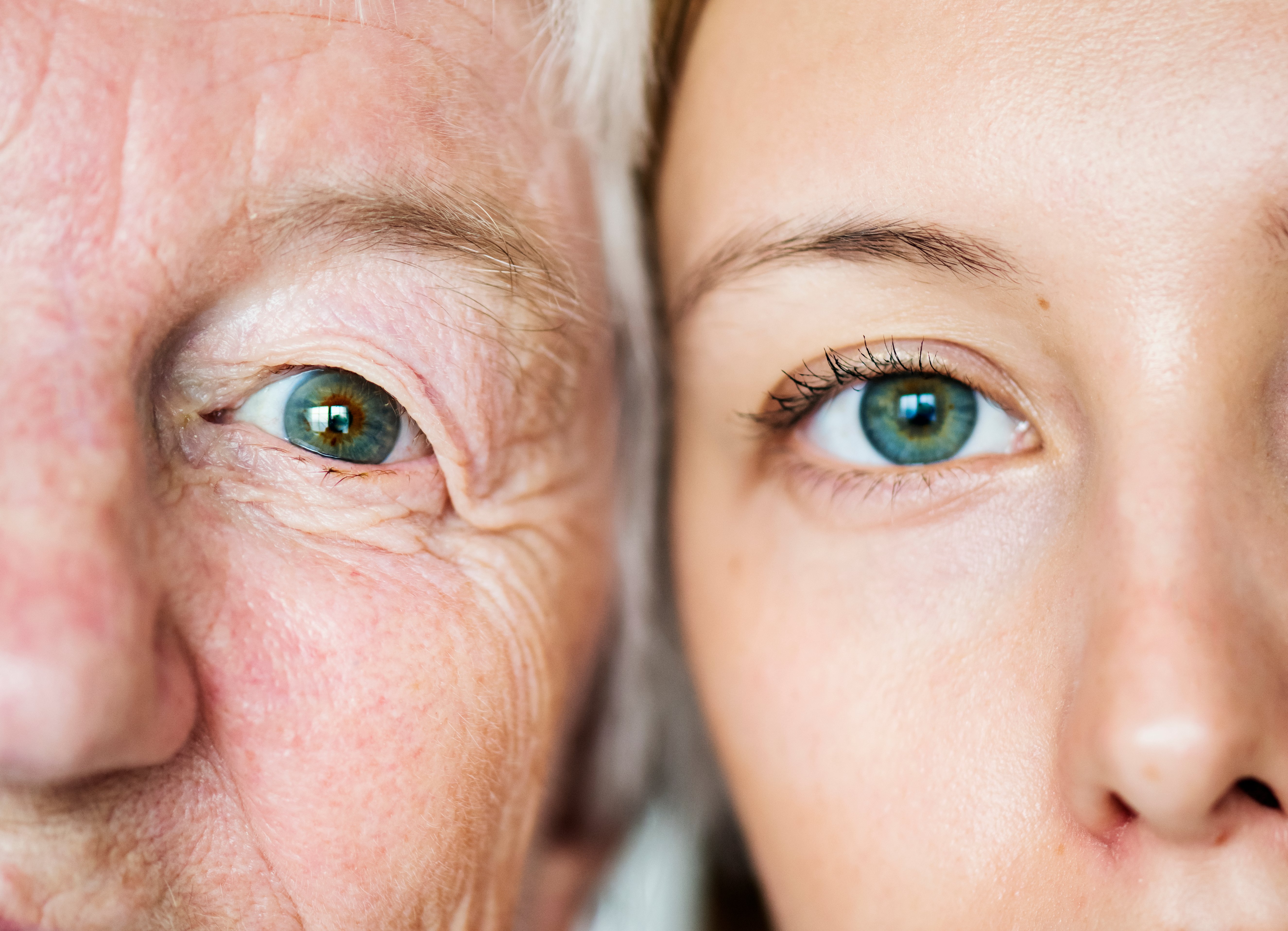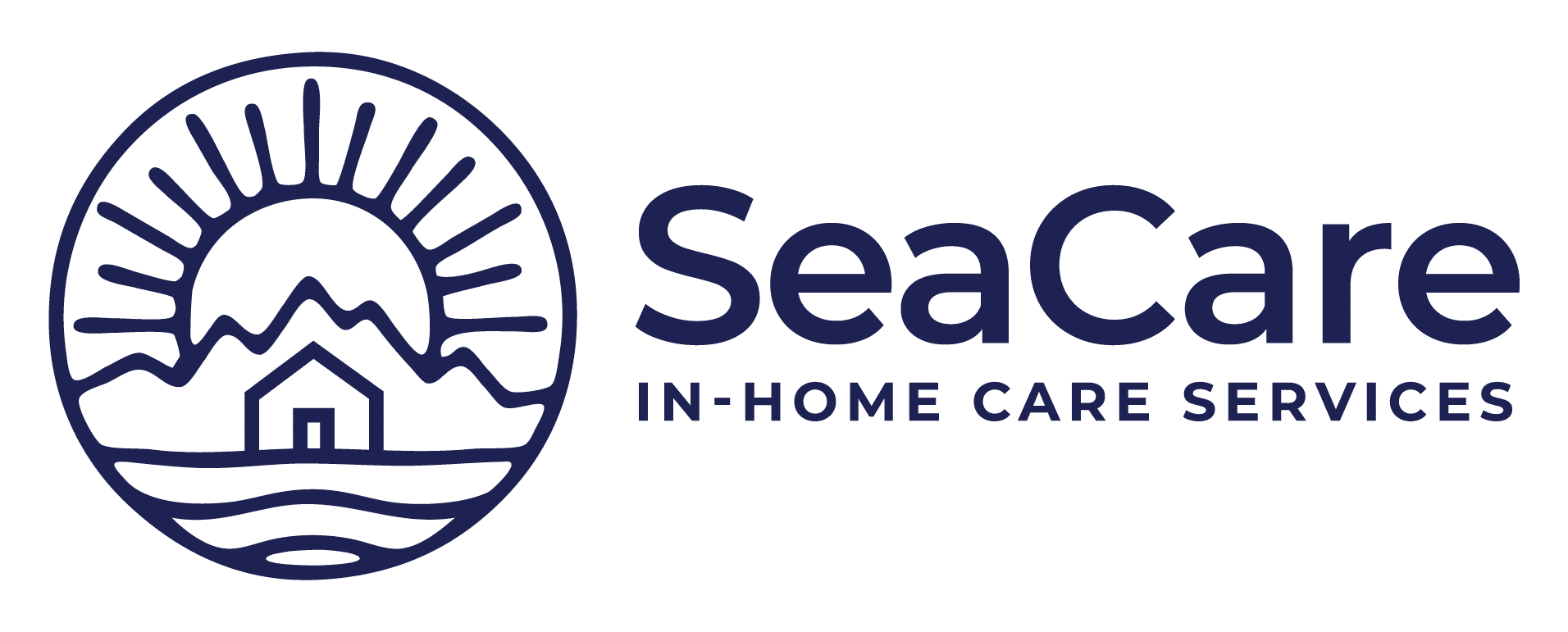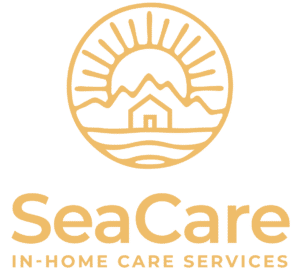Eyes wide open: How vision exams help seniors maintain independence
by Katie Wright | May 26, 2021 | home health care, healthy living seniors, resources on aging | 0 Comments

When was the last time you had your eyes checked? Our chaotic year of COVID led to 25% of Americans skipping their eye exams.
This might not have been a problem for younger people who can get away with eye exams every 5 years or middle-aged adults who should get tested every 2 to 4 years. But for those over the age of 65, missing an exam could be more consequential. Older adults should be heading to the optometrist or ophthalmologist every 1 to 2 years.
And more often if they have certain other health conditions like diabetes.
Why? Because your overall health depends on it.
My eyesight has been poor since I was an 8-year-old squinting at the blackboard in second grade. An eye exam recommended by my teacher revealed near-sightedness. I’ve worn corrective lenses for over 60 years as a result.
I’m not alone. Approximately 75% of Americans need vision correction and nearly everyone over the age of 60 needs some type of correction.
As I worked on a values checklist while preparing my advance directive, I thought about how much I cherish my eyesight. Don’t we all? I thought how diminished vision would make two of my favorite things – reading and writing – seriously compromised and eventually impossible.
And worse, how losing my sight could impact my ability to live independently and dampen my dream to live my remaining years in my own home.
Just thinking about it prompted me to make an appointment for my annual eye exam. I’m 69 and even though my correction hasn’t changed for the past few years, I want an annual exam for one reason – there are some serious eye diseases that don’t cause symptoms in their early, treatable stage. By the time they’re advanced, it may be too late to restore or maintain vision.
I don’t want that to be my fate, so I have a plan to take good care of my eyes. I’m learning about what diseases are most likely to affect seniors and what tools of prevention are available.
And I’m getting my eyes checked annually.
It’s Healthy Vision Month and I invite you to join me.
Why older adults should pay special attention to their eye health
Eye care is an important part of your overall health. Vision loss is a public health problem, according to the Centers for Disease Control (CDC). Some 80 million Americans have eye diseases that can cause blindness if left untreated.
Impaired vision affects your ability to do all kinds of things that weren’t a struggle when you were younger. As you lose your ability to see clearly, your quality of life is impacted. You may not be able to drive or navigate safely, read, or do physical activities that require good depth perception.
Failing vision leads to decreased confidence in remaining independent.
Limited sight often results in depression and cognitive decline. And you are more likely to fall. On average about 30% of older adults experience a fall in a year. Vision impairment increases the risk by more than doubling it. When you’re afraid of falling you tend to curtail your activity.
Some eye diseases are more common as you age
Age-related diseases of the eye are the leading cause of low vision and blindness in the United States, says the CDC. While many problems such as near-sightedness, far-sightedness, and astigmatism can be remedied by corrective lenses or surgery, others are more serious. Especially if they’re left undetected.
Regular eye exams are your most effective means of preventing severe vision loss.
Age-related macular degeneration (AMD) damages central vision and makes recognizing details difficult, like facial characteristics or words on a page or package. “Wet” AMD is due to bleeding behind the retina and causes vision loss rapidly. “Dry” AMD, caused by a thinning of the macula, is more common, and progresses more slowly. In their early stages, both forms of AMD display no symptoms. Although early detection through regular eye exams won’t cure AMD, it can help prevent blindness.
Diabetic retinopathy is a complication of diabetes and usually affects both eyes. It’s caused by damaged blood vessels of the retina and is characterized by floating spots and blurry vision. The longer you have diabetes, the greater your chances of developing the disease. Since in its early stage there are few symptoms, testing via a dilated eye exam is essential.
Cataract is the most common eye disease and the leading cause of blindness around the world. It’s caused by normal aging of the eye. The lens of the eye becomes cloudy and blurs vision due to a buildup of proteins, but the condition is treatable with surgical lens removal. Cataracts can afflict all ages, and regular eye checks make a difference.
Glaucoma is a term for a group of diseases that damage the optic nerve due to rising fluid pressure inside the eyes. It cannot be cured, but early treatment can help prevent extreme impairment.
How older adults can lower their risk for severe vision loss
As with other health concerns that increase with age, you can make lifestyle changes to lessen your risk. While you may not be able to prevent eye disease, the more you know the better your chances of getting treatment and coping with vision impairment.
Maintaining good health overall is your best defense against serious vision loss. It may not surprise you to learn that healthy choices affecting eye health are reflective of similar choices you can make to guard against other chronic conditions like cardiovascular disease and diabetes.
- Don’t smoke. Smoking disturbs blood flow to the retina, deposits heavy metal inside the lens, and restricts oxygen flow to the eyes.
- Exercise regularly. Aerobic activity lowers pressure in the eyes and increases blood flow to the optic nerve.
- Maintain good numbers – blood pressure, cholesterol level, weight, A1c – to lessen your risk of chronic disease.
- Eat a variety of fruits and vegetables, especially dark leafy greens, which provide healthy antioxidants to prevent damaging free radicals.
- Wear sunglasses and a hat when outdoors. Protection from ultraviolet light prevents damage to the retina, lens, and cornea.
- Get a dilated eye exam. Early detection makes a difference.
How caregivers can keep an eye on seniors’ visual health
Since diminished eyesight tends to progress slowly, it can be difficult to realize how serious the loss is. Caregivers are in a good position to observe changes in their loved one’s behaviors and can watch for signs of vision loss.
If you notice your loved one doing fewer activities that involve vision, like reading or sewing, inadvertently bumping into things, or walking more hesitantly than usual, these could be indications of failing vision.
You may wish to get assistance in arranging your senior’s home to remove clutter and excess furniture for easier movement.
Because failing vision generally occurs in older adulthood, it may happen along with hearing loss and weakened smell and taste. It’s not surprising, then, that this sensory decline is especially difficult to cope with. Caregivers can provide moral and practical support.
The staff at SeaCare are happy to explain how our professional caregiving staff can assist with the activities of daily living that become more difficult with vision loss.
If you have low vision, there are ways to make the most of your remaining sight
Doing things you enjoy and maintaining your independence become increasingly difficult with vision loss. If your loss is not severe, installing brighter lights at home, wearing anti-glare sunglasses, or using a magnifying glass for close-up work can be helpful. Large-print books are a lifesaver.
If low vision has progressed to the point of interfering with daily activities, check with your eye doctor about additional rehabilitative measures. There are special portable magnifying devices available for reading. King County’s Access Transportation provides transit service throughout the area for those unable to drive safely.
Seeking supportive therapy can help to ease symptoms of helplessness and anxiety and assist with the grief that may accompany vision loss. VisionAware.org is an informational website with helpful resources.
And finally, these videos of people who are living with low vision might provide some inspiration.
At SeaCare we know what the comforts of home mean to older adults. We can help you age well at home, and provide the information and support you need to maintain a safe, healthy environment. Contact us to learn more.
Katie Wright writes about aging and senior wellness from Bellingham, WA. You can read more about her here.
If you or a loved one you know are looking for additional support during this time and are interested in scheduling a free in-home assessment, please contact SeaCare In-Home Care Services today! A SeaCare family member is standing by. 425-559-4339.



0 Comments